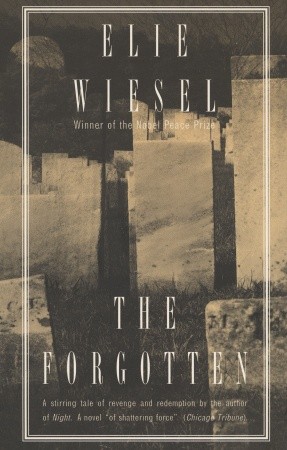
The Forgotten PDF
Preview The Forgotten
Nobel Peace Prize winner Wiesel ( Sages and Dreamers ) reprises the themes of memory and forgetting in this almost unbearably moving novel. Elhanan Rosenbaum, one of the few Jews in his Romanian village to have survived WW II, is a widower whose adored wife died giving birth to their only child. Decades later, he is losing his memory to an unspecified illness. Horrified at the possibility that all he has witnessed will be surrendered to oblivion, he entrusts his life's story--and the stories of the people he alone remembers--to his son, Malkiel, a reporter for the New York Times . At Elhanan's request, Malkiel travels to the Carpathian mountains to explore the mysteries that still confound his father. There he pores over the tombstones in the Jewish cemetery, the legacy of a once-thriving community, and meets the gravedigger. In one of the most poignant passages in an already tender novel, the gravedigger tells the story of the Great Reunion: as the Nazis deport the last Jews, the ghosts of the village's rabbinical judges convene to avenge the fate of their now-extinct congregation. Malkiel begins to comprehend the relations between memory and grace, courage and forgiveness. Here and there a sentence sinks into sentimentality ("Twenty years of sun, laughter, a free and savage joy, were inscribed on her fine and angular Oriental face"), but the integrity of Wiesel's respect for history and his recognition of its fragility give this novel an impact simple in its strength and complex in its dimensions.
Copyright 1992 Reed Business Information, Inc.
This novel of the memories of a Holocaust survivor adds substantially to Wiesel's collection of more than 30 works--including essays, plays, cantatas, and novels--in some way related to the destruction of European Jewry. Wiesel's concise, haunting, stark imagery has earned him the title of literary laureate of the Holocaust. Here, survivor Elhanan Rosenbaum, now living in New York and a distinguished professor with a psychiatric practice, is tragically losing his prodigious memory. While he can still remember, he creates a "backup" by bequeathing to his son, Malkiel, his stories of the martyred death of his father in his Carpathian village (for whom his son is named); his teenage stint in the army and his return to a ghetto empty of Jews; his adventures in the underground partisan movement; and his love of Talia, the extraordinary woman who rescued him and who died giving birth to his only son. These searing tales, which spur Malkiel on a search of collective past, succesfully link generations together. Wiesel's substantial readership will appreciate the introspection and search for truth in this new work. Recommended for all libraries. Previewed in Prepub Alert, LJ 12/91.
- Molly Abram owitz, Silver Spring, Md.
Copyright 1992 Reed Business Information, Inc.
